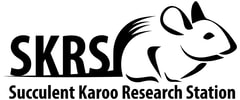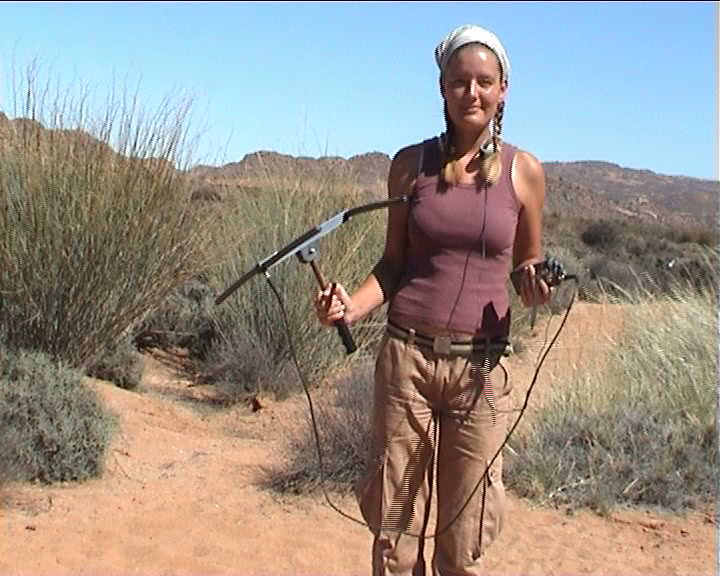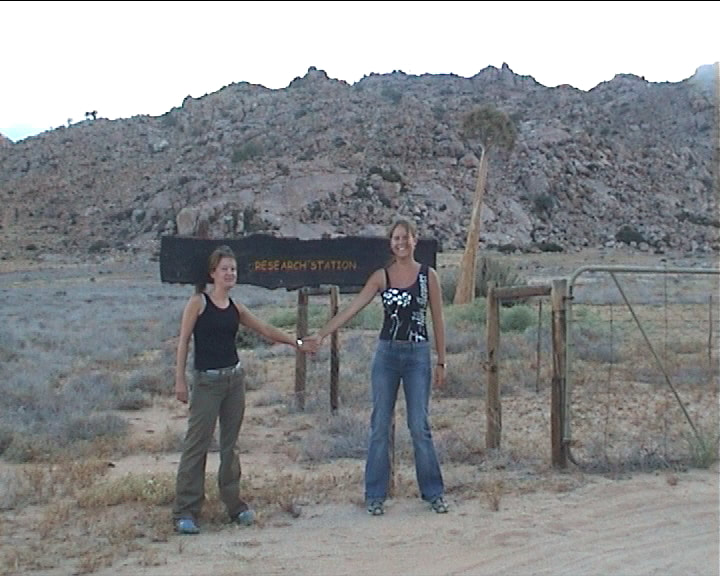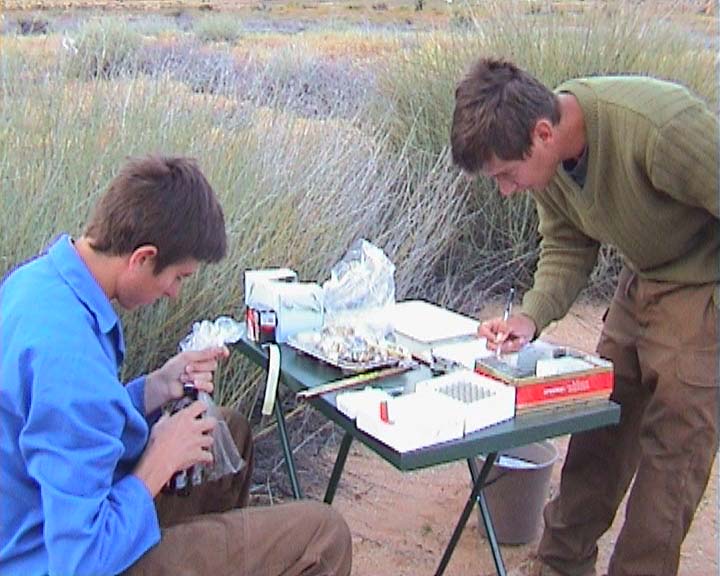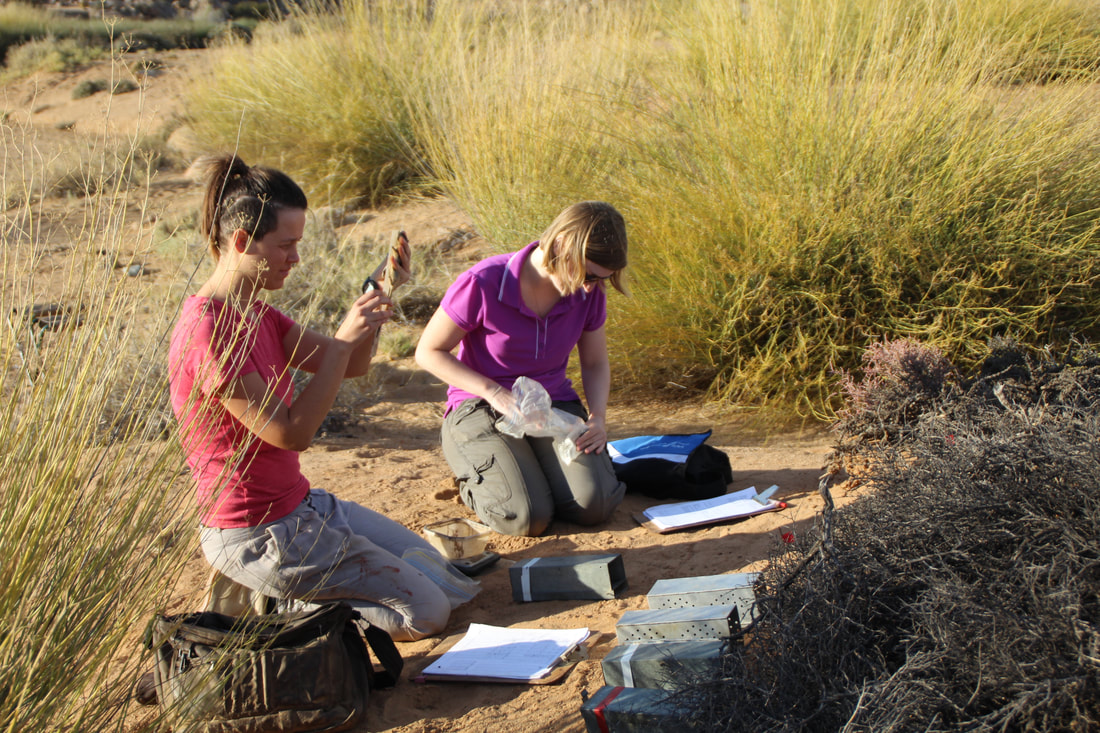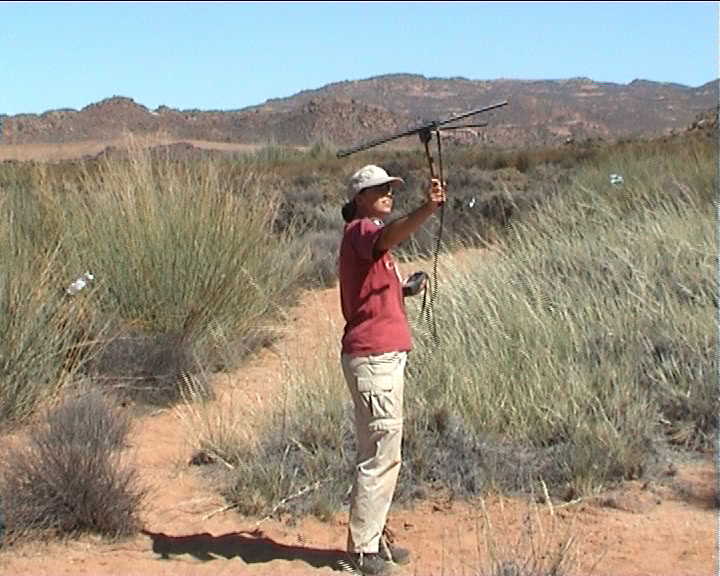Volunteer Field Assistants
|
Become a Volunteer at the Succulent Karoo Research Station!
Minimum stay 2 months Evolution and Socio-Ecology of Small Mammals in the Succulent Karoo of South Africa (NOTE: This is an unpaid volunteer position) Opportunity: This is a great opportunity for anybody who wants to get more experience in field work related to animal behavior, evolution, eco-physiology, and ecology before starting an MSc or PhD project. Project: We study the evolutionary and ecological reasons as well as physiological mechanisms of group living, solitary living, and social flexibility in bush Karoo rats and the striped mouse. The focus is on costs and benefits of solitary living in bush Karoo rats, determining its social organization and social structure. As this species is diurnal and the habitat is open, direct behavioral observations in the field are possible. What kind of people are needed? Applicants must have an interest in working in the field and with animals. Hard working conditions will await applicants, as the study species gets up with sunrise (between 5:30 and 6 AM), and stops its activity with dusk (7 PM). Work during nights might also be necessary. Work in the field will be done for 5 days a week. Applicants must be able to manage extreme temperatures (below 0 at night in winter, sometimes over 40°C during summer days). Applicants must both be prepared to live for long periods in the loneliness of the field and to be part of a small social group. There is wifi during daytime hours (but not at night) for internet, Whats App and internet calls (but there is no telephone line and and no cell-phone reception) at the research station. Work of volunteer field assistants: Trapping, marking and radio-tracking of small mammals; direct behavioral observations in the field. Volunteers are expected to help with maintenance of the research station (water pump, solar power, etc.). Confirmation letter: Students get a letter of confirmation about their work and can prepare a report of their own small project to get credit points from their university for their bachelor or masters studies. Costs: Students have to arrange their transport to the field site themselves. Per month, an amount of approx. 125 Euro must be paid for accommodation at the research station. Students must buy their own food in Springbok. Including extras (going out for dinner; shopping), you should expect costs of about 500 Euros or 600 US$ per month. Students can get an invitation letter to apply for a travel grant at their home university / home country. Place: The field site is in the Goegap Nature Reserve near Springbok in the North-West of South Africa close to Namibia. The vegetation consists of Succulent Karoo, which has been recognized as one of 25 hotspots of biodiversity. It is a desert to semi-desert with rain mainly in winter (June to September). Corona situation: Only vaccinated persons are allowed to stay at the research station. When and how long: We are looking for volunteers throughout the year. Volunteers must stay for a minimum of 2 months. How to apply? Send a short motivation letter stating why and for which period you are interested and your CV via email to [email protected]. There is no deadline, but applications are continuously reviewed. List of previous field assistants |
